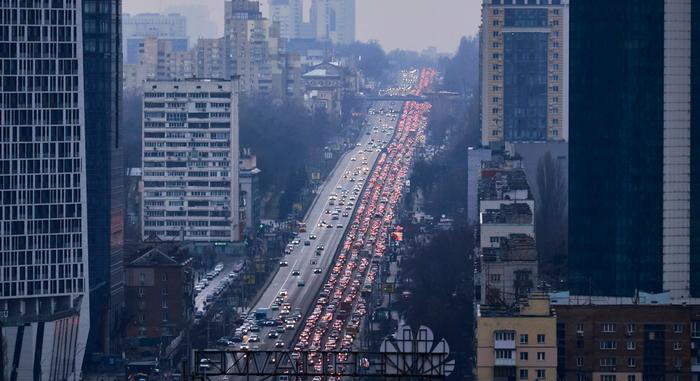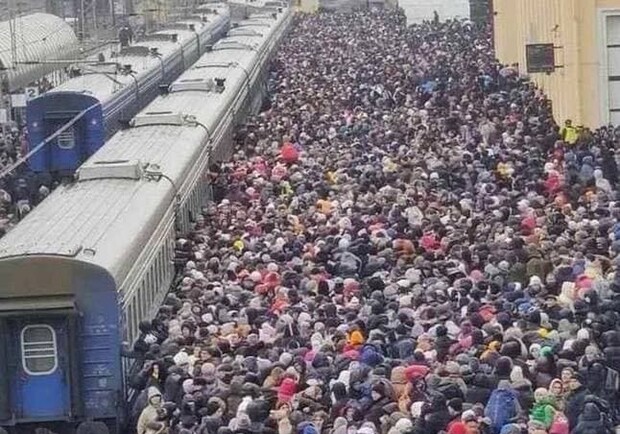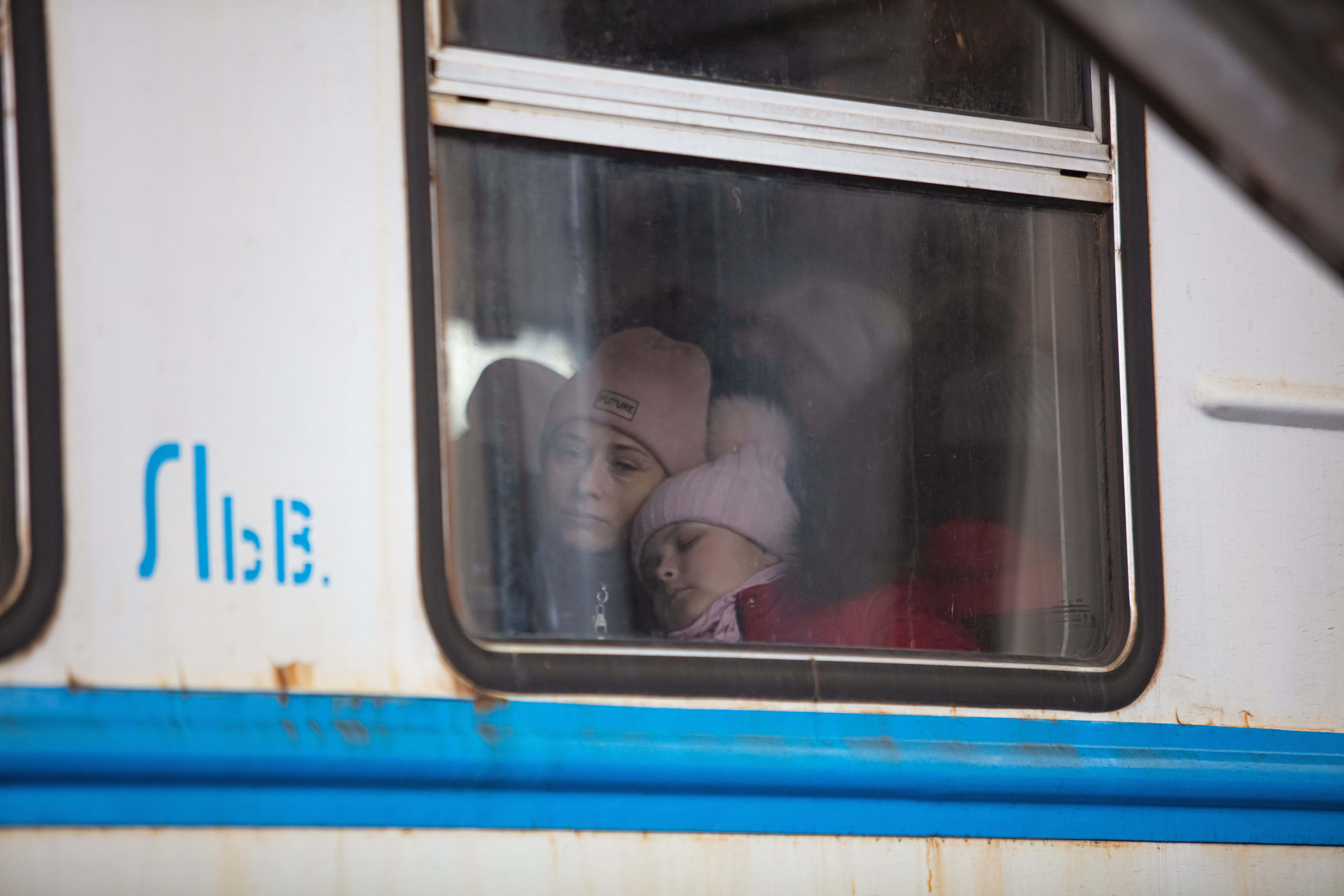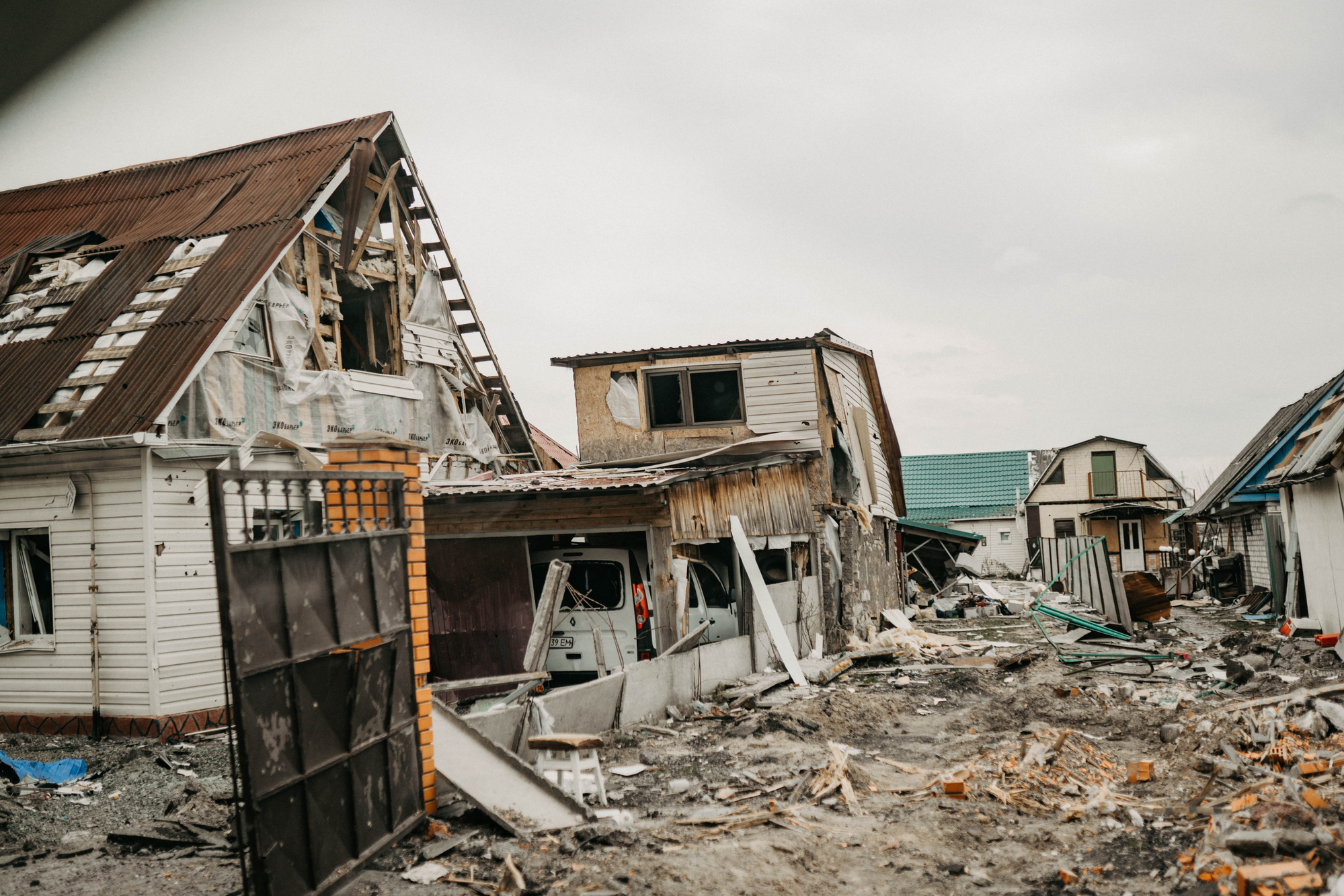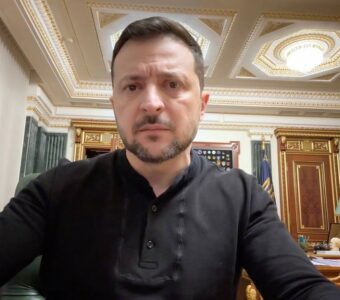"Humanity in a non-human time": migrant's diary of thousand fates

When we in the Rokada charity fund, the executive partner of the Office of the United Nations High Commissioner for Refugees, had an idea to write the Migrant's Diary, one of our colleagues said many of the stories would start on February 24. Next, they would see pain, embarrassment, and desperation. So it turned out—first, realizing the need to tell the story about that terrible Thursday, and then confusion in thoughts and events, depression or angry emotions…
It is noteworthy that the Migrant's Diary is published on World Refugee Day. Whether we speak about those who've moved to Ukraine's safer rear or abroad doesn't matter.
In these stories, everyone can recognize themselves… and realize that someone has already lived through that, as Lina Kostenko, a prominent Ukrainian writer and poet, wrote. As we know, the shared pain slowly subsides, and the divided joy multiplies. Therefore, the names of our heroes, mainly from the pool of Ternopil's Rokada, have been changed, but cities, places, and events are real. It is a collective Diary, which the Stories of others will extend.
Viktoria, 34, Kyiv region
February 24
I was warned that there would be a war by my ex-husband from Poland, where they seriously discussed the possibility of war then, and by one friend from Kyiv. I bought tickets for the trip to Ukraine's West on February 16. I was going to move there to relatives to wait until the hostilities finished. Then I listened to other friends and relatives who didn't believe the war could begin, and I returned the tickets and stayed home.
On February 24, I woke up early in the morning. I checked the messenger. In my son's school's Viber chat, I saw the information that there would be no lessons that day. I had one thought, "Why?" Suddenly, I heard the explosion. At that time, we didn't know that the Аir Defense was working. "The War"—the thought pierced through me.
On the eve, I received a message from the administrative services center that my son's passport was ready. Despite the second day of the cold, which had been with temperature and great weakness, I decided to go to Kyiv—a friend from the center told me they were working. It is another story of how I reached that place. There were huge traffic problems and no public transport from my town to Kyiv.
Even though the center was not working when I reached it, and all workers were in the bomb shelter, I still received my passport. It's an example of humanity in difficult times.
The way back lasted several hours: by subway, until it was possible, then 8 kilometers of walking, the last two kilometers by old bus, which people used to evacuate to the Khmelnytskyi region.
At home, I packed the most necessary of our things with my son in two small bags. I was thinking: if I had to go on foot, I wouldn't want to throw away clothes and toys on the road… The next day we went to Khmelnytskyi. From there, to Lviv, and finally to Przemyśl, Poland. Thirty hours instead of three: it took a long time for Poland's border guard service to accept evacuation trains from Ukraine. We were in an electric train with wooden chairs and with stops in the field. When we stopped closer to the villages, local people brought sandwiches, hot soups, potatoes, tea, and coffee.
The Warsaw family, which gave us an apartment to live in, treated us as members of their family. We feel safe. I know Polish; I studied it at university. My son found new friends at school. However, I miss my home, my apartment, where my mother settled soldiers from the Ukrainian Armed Forces in our absence. It is vital, at least somehow, to be helpful.
Notes in the margins
Victoria's son constantly looked into the screen while we talked in the messenger, trying to attract attention. Finally, when we talked about their home, he asked when they could return there…
Oksana, 52, Kyiv–Kharkiv
March 2
I worried very much about my daughter, who was on her eighth month of pregnancy in February, and about my son-in-law—they live in Kharkiv. I'm from Kyiv. In Kharkiv, the first bombs were thrown at the Chuhuiv airfield on February 24 at 4 am. My daily anxiety was growing: children lived near the now famously destroyed area of Saltivka and the Chuhuiv-Izium highway… For a week, they literally lived in a bomb shelter; it was difficult for my daughter to go up each time to the fifth floor of their apartment and then go down to the bomb shelter. Several times a day.
Eventually, the children decided to leave; the neighbor was on his way to the station, and his car had two empty seats. For you to understand: In those days it cost three thousand or more hryvnias to get there…
Here they were, in a big crowd. They came to the train platform, where they stood outside for four hours, where something exploded, rattled, and ignited from time to time. It was impossible to return to the station's building; people were standing tightly around.
They were going on the second floor of the Intercity train. 5 pm. My daughter asked permission to lie in the passage. My son-in-law stood beside her all the way. They didn't think about where they were going. The main thing was to go far away. I expected they might come to Kyiv, but they went to Ternopil. At first, they didn't even say the city name; they just wrote the letter T. Conductors asked to turn off geolocation and not message on the way. Then in the news, I read about Kharkiv-Ternopil evacuation trains. A few days later, I came to them. My granddaughter was born in Ternopil. They named her Veronika. In honor of our Victory. Nika means Victory.
Notes in the margins
Many war-time photographs will be remarkable, memorable, and even historic. There is also a photograph of countless Kharkiv residents near the evacuation train.
Iryna, 45, Stanytsia Luhanska, Luhansk region
April 5
I had to run away with two children—17 and 13—because my 26-year-old son is serving in the Armed Forces of Ukraine. I knew that the neighbors could give us up to the people from the Luhansk People's Republic. As soon as we left, they came to us. Or maybe they came for us. It's awful to think what they might have done to us.
Most of all, I remember the beginning of the war on February 24 (on February 26, the LPR soldiers had already entered Stanytsia Luhanska) and April 5 when we left the house, first to Starobilsk, then to Dnipro, and from there to Ternopil to my cousin.
Notes in the margins
Then her eyes started to fill with tears. If it were a film, the camera would show how the words she had just written started to become "blurred."
Iryna recalls that she didn't talk to her son, who was on the front for a month. We don't know if there's no mobile service, or she just said that because of fear, to protect him. It's like an inner monologue out loud.
Liudmyla, 72, Chernihiv
March 18
I can say that angels rescued us—my daughter, my 12-year-old grandson, and me—on their wings from Chernihiv. From the first day of the war, we hid in the basement; we lived in a private house. Sometimes we had to sit there all day: planes flew, and shells exploded. Sometimes we cooked the soup for several hours, running out of the basement to the kitchen to throw some potatoes into the soup and hiding again. When it was quiet, we ran out to throw in some grain… So that we had the chance to eat something because there was no food available to buy; everything was closed. And then the gas supply was gone.
When my grandson began to cry and said he wanted to live and we didn't have the strength to hide in our basement, an employee of my daughter took us to her work to a bomb shelter, where we spent a lot of time. Finally, we decided to leave. People's promises of help were not true; they left the city as fast as possible. One day, a van going to Kyiv had three seats available, and without thinking for a long time, we decided to leave. We took the train to Ternopil in the capital, and now we are here.
It seems I will not return to Chernihiv. I can not look at the burned-down house—a shell hit it—and everything in the house burned to the ground. I was a house-proud person: I had all the household appliances and vegetable garden around the house. And what a flowerbed I had! Besides, my daughter has already settled here; she got a job as a pharmacist.
I believe in Commander Zaluzhnyi! My son-in-law is in the Armed Forces of Ukraine. I read the news every day on Telegram. And every day, I pray! We will win!
Notes in the margins
Four months of war have put sadness on Liudmyla's face. But time has not changed her character and her posture. Despite the bruises on her face (she passed out on the stairs near the church), she wore earrings and a ring for our conversation. She will still be the house-proud person. In a new place. In a new house.
July 2, August 17, September 20, October 14… Some dates can fit everything endured in a day in two paragraphs; for others, even two pages will not be enough. May these July 2, August 17, September 20, and October 14 bring us closer to the Victory. It will be written in the Migrant's Diary about wisdom, strength, power, value, new experience, and new acquaintances, and also about life not after February 24 but after Victory.


